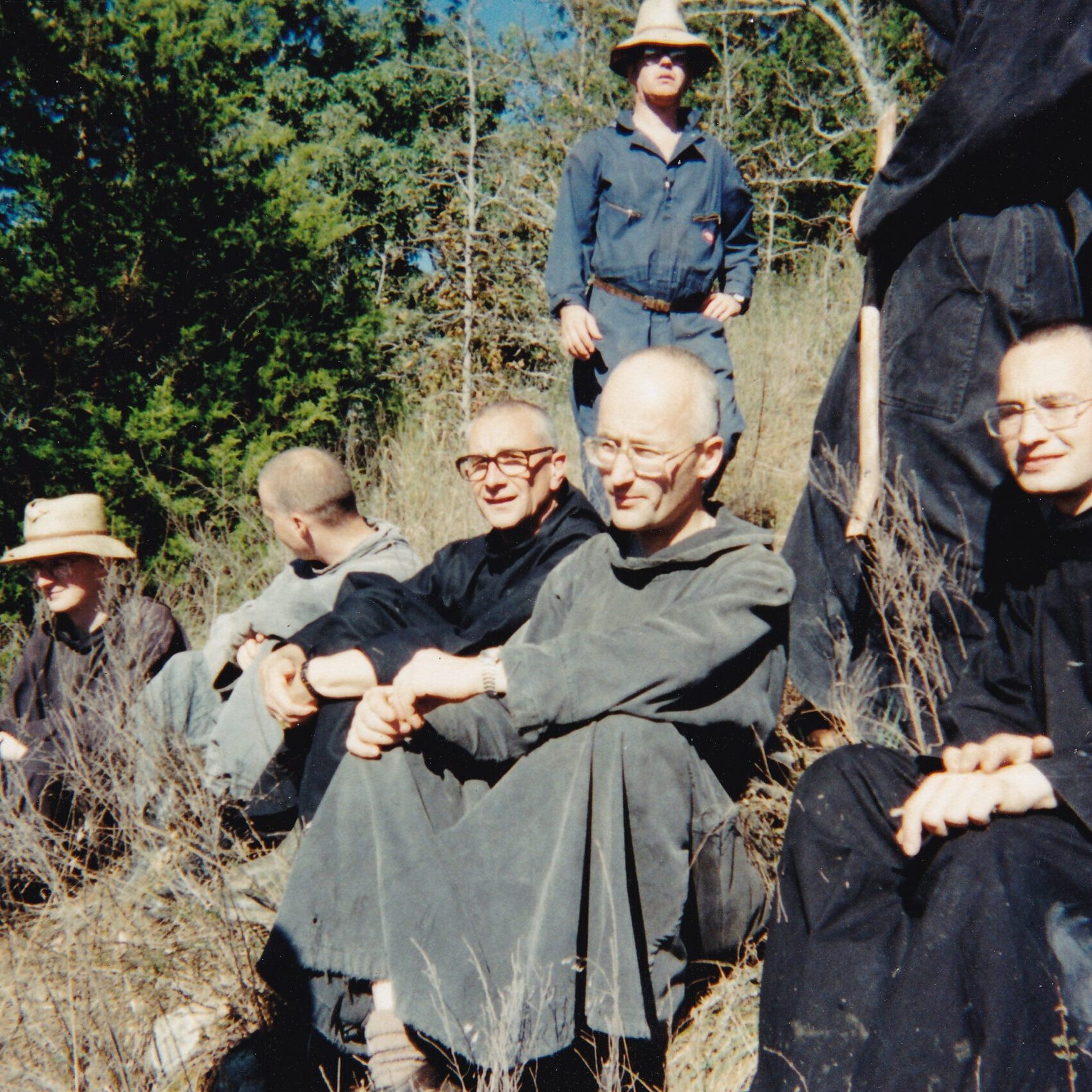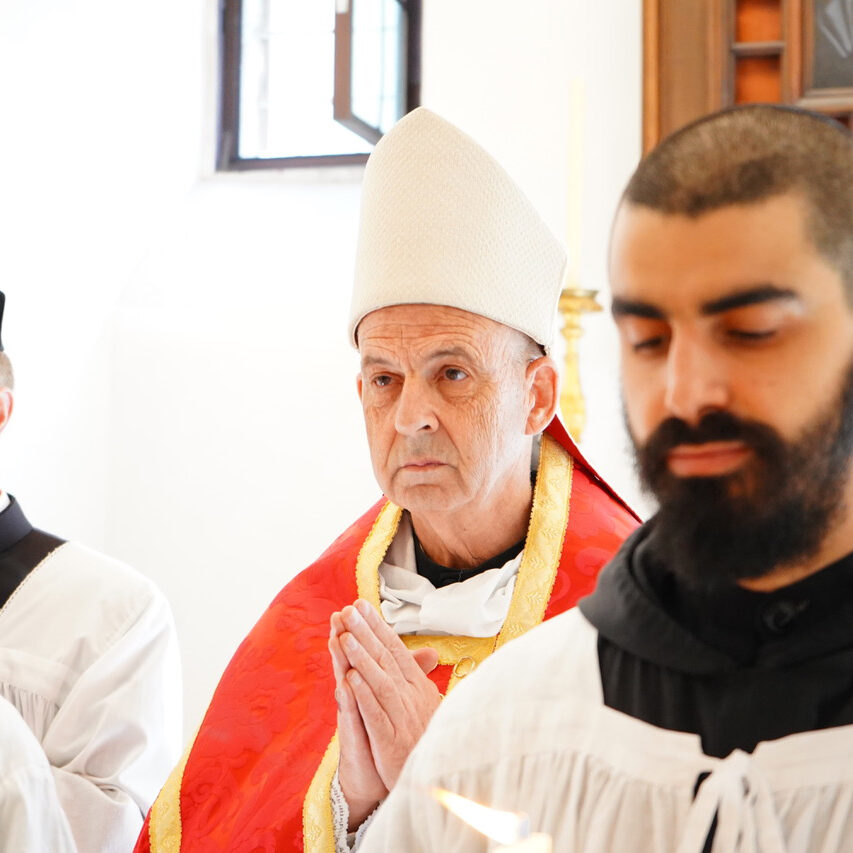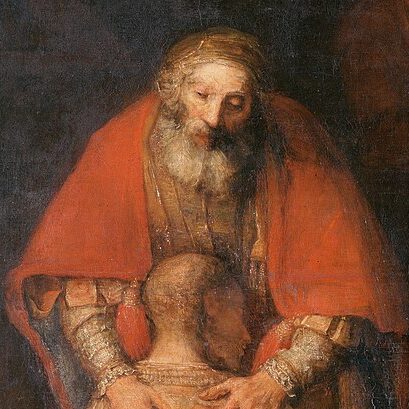Dear Friend of Clear Creek Abbey,
There is no subject more central to monastic doctrine than that of purity of heart. The conferences of St. John Cassian bear ample witness to this fact. Seeing God in the company of the Blessed of Heaven is what Cassian assigns as the end toward which our lives must be ordered. And purity of heart is the means to that end. This comes to us directly from our Lord himself: “Blessed are the pure of heart, for they shall see God” (Mt. 5:8). Of course this has all been expounded upon by the saints and doctors of the Church, but it is especially worth pondering as we enter into the Lenten season.
As we clearly see in the Gospel, most notably during the dramatic confrontations between the Lord and the Pharisees, there often occurs a false sort of purity that is mere caricature. “Why do thy disciples transgress the tradition of the ancients? For they wash not their hands when they eat bread” (Mt. 15:2). As is still the case today, the world of Christ’s time was already witness to two extremes, two wrong tendencies that distracted the spiritual pilgrim from the right path. These two errors were truth without charity and charity without truth. In our own day, it is the charity without truth folks who maintain the upper hand in our decadent Western culture. We tend to err on the side of gross sentimentality. Whereas in our Lord’s day, he had more trouble with the truth without charity crowd, as exemplified by the rigid brotherhood of the Pharisees.
However, if the pursuit of purity occasionally leads to this false “cleanness of heart”—purity that is only pretence and hypocrisy—should we then extol the merits of hardened sinners, merely because they are free from hypocrisy? That would be a catastrophe of a different sort, one which we see commonly enough in our own day. Charity without truth is no better than truth without charity. We must hold both ends of the chain—both truth and charity—if we wish to arrive at an authentic purity of heart.
The great challenge is to maintain our balance atop the arduous divide of moral perfection, between the two excesses that threaten us on either side. Only from the narrow path of such a balance can the life of the theological virtues—faith, hope and charity—take flight heavenward. G. K. Chesterton expresses an underlying truth regarding our purity of heart and our attainment of heaven:
There is at the back of all our lives an abyss of light, more blinding and unfathomable than any abyss of darkness; and it is the abyss of actuality, of existence, of the fact that things truly are, and that we ourselves are incredibly and sometimes almost incredulously real. It is the fundamental fact of being, as against not being; it is unthinkable, yet we cannot unthink it, though we may sometimes be unthinking about it; unthinking and especially unthanking. For he who has realized this reality knows that it does outweigh, literally to infinity, all lesser regrets or arguments for negation, and that under all our grumblings there is a subconscious substance of gratitude…. This is something much more mystical and absolute than any modern thing that is called optimism; for it is only rarely that we realize, like a vision of the heavens filled with a chorus of giants, the primeval duty of Praise.
Thus there is a fundamental fact, a fundamental affirmation of what really is and there follows from that a fundamental responsibility: the “primeval duty of Praise.” This primeval duty of praise is the key to purity of heart, for it is the grateful person alone who possesses a pure heart.
We monks of Our Lady of Clear Creek are most thankful for the newly completed sanctuary of our abbatial church. Thanks to your generosity we are now able to pray in a more fitting environment, one better adapted to our life of praise in the holy liturgy. Some day we hope to see the church entirely completed and ready for its solemn dedication! Until then, with your continued support, we will strive to live an authentic monastic life, one that favors purity of heart and breaks out into praise.
+ br. Philip Anderson, abbot
Dear Friend of Clear Creek Abbey,
There is no subject more central to monastic doctrine than that of purity of heart. The conferences of St. John Cassian bear ample witness to this fact. Seeing God in the company of the Blessed of Heaven is what Cassian assigns as the end toward which our lives must be ordered. And purity of heart is the means to that end. This comes to us directly from our Lord himself: “Blessed are the pure of heart, for they shall see God” (Mt. 5:8). Of course this has all been expounded upon by the saints and doctors of the Church, but it is especially worth pondering as we enter into the Lenten season.
As we clearly see in the Gospel, most notably during the dramatic confrontations between the Lord and the Pharisees, there often occurs a false sort of purity that is mere caricature. “Why do thy disciples transgress the tradition of the ancients? For they wash not their hands when they eat bread” (Mt. 15:2). As is still the case today, the world of Christ’s time was already witness to two extremes, two wrong tendencies that distracted the spiritual pilgrim from the right path. These two errors were truth without charity and charity without truth. In our own day, it is the charity without truth folks who maintain the upper hand in our decadent Western culture. We tend to err on the side of gross sentimentality. Whereas in our Lord’s day, he had more trouble with the truth without charity crowd, as exemplified by the rigid brotherhood of the Pharisees.
However, if the pursuit of purity occasionally leads to this false “cleanness of heart”—purity that is only pretence and hypocrisy—should we then extol the merits of hardened sinners, merely because they are free from hypocrisy? That would be a catastrophe of a different sort, one which we see commonly enough in our own day. Charity without truth is no better than truth without charity. We must hold both ends of the chain—both truth and charity—if we wish to arrive at an authentic purity of heart.
The great challenge is to maintain our balance atop the arduous divide of moral perfection, between the two excesses that threaten us on either side. Only from the narrow path of such a balance can the life of the theological virtues—faith, hope and charity—take flight heavenward. G. K. Chesterton expresses an underlying truth regarding our purity of heart and our attainment of heaven:
There is at the back of all our lives an abyss of light, more blinding and unfathomable than any abyss of darkness; and it is the abyss of actuality, of existence, of the fact that things truly are, and that we ourselves are incredibly and sometimes almost incredulously real. It is the fundamental fact of being, as against not being; it is unthinkable, yet we cannot unthink it, though we may sometimes be unthinking about it; unthinking and especially unthanking. For he who has realized this reality knows that it does outweigh, literally to infinity, all lesser regrets or arguments for negation, and that under all our grumblings there is a subconscious substance of gratitude…. This is something much more mystical and absolute than any modern thing that is called optimism; for it is only rarely that we realize, like a vision of the heavens filled with a chorus of giants, the primeval duty of Praise.
Thus there is a fundamental fact, a fundamental affirmation of what really is and there follows from that a fundamental responsibility: the “primeval duty of Praise.” This primeval duty of praise is the key to purity of heart, for it is the grateful person alone who possesses a pure heart.
We monks of Our Lady of Clear Creek are most thankful for the newly completed sanctuary of our abbatial church. Thanks to your generosity we are now able to pray in a more fitting environment, one better adapted to our life of praise in the holy liturgy. Some day we hope to see the church entirely completed and ready for its solemn dedication! Until then, with your continued support, we will strive to live an authentic monastic life, one that favors purity of heart and breaks out into praise.
+ br. Philip Anderson, abbot






